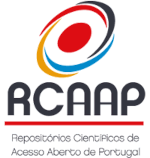Knowledge and attitudes of parents towards children with fever quantitative study
DOI:
https://doi.org/10.62741/ahrj.v2iSuppl..80Keywords:
Pediatric fever management, Parental knowledge and attitudes, Health literacy, Clinical practice guidelines, Antipyretic medication useAbstract
Introduction: In 2018, the Direção-Geral da Saúde published a standard (Standard 014/2018) entitled Integrated Care Process for Short-Term Fever in Pediatric Age, with the purpose of standardizing the care provided by health professionals and instructing parents about measures to be adopted in the different phases of fever: temperature rise, plateau and defervescence.
Objective: This study aims to compare the knowledge and attitudes of parents towards children with fever with the indications set out in the stated standard and to disseminate its guidelines.
Methodology: Quantitative, observational and cross-sectional study in a non-probabilistic sample composed of 201 parents of children aged 2 to 10 years old. A questionnaire was prepared and submitted for pre-testing with 11 mothers, with no changes being suggested. An explanatory pamphlet, created by the author, was given to participants after completing the questionnaire. Data collection occurred in January/February 2024, in arbitrarily selected shopping malls, after authorization from the institutional Ethics Committee. Informed consent signed by participants and data confidentiality guaranteed. These were anonymized and processed using SPSS software, version 26.
Results: sample composed mainly of participants living in urban areas (61.2%), aged between 24-52 years (M=37.81; SD=5.98), with a degree (34.4%) and professions not related to health (82.6%). They consider fever values ≥ 37.5ºC (45.3%), with warning signs being lack of appetite (53.7%) and excessive sleep (46.3%). Adequate measures were used by only 1.5% of the sample in thermal ascent, by 26.9% in situations of discomfort and by 34.3% in thermal descent. Regarding the use of antipyretics, only 32.3% resort to paracetamol monotherapy.
Discussion: Comparing the Direção-Geral da Saúde indications contained in Standard 014/2018 with the knowledge and attitudes of most participants in this sample, they do not appear to proceed in accordance with the indications contained in the standard under consideration, which agrees with other studies found in the literature.
Conclusions: Given the data presented, we found that the Direção-Geral da Saúde indications published around seven years ago still do not appear to be known by most participants. It is suggested that healthcare professionals reinforce teaching on this topic, promoting health literacy.
References
NA
Downloads
Published
Issue
Section
License
Copyright (c) 2025 Athena Health & Research Journal

This work is licensed under a Creative Commons Attribution-NonCommercial 4.0 International License.
Copyright of published papers is assigned to the Journal, but all content is licensed under the terms of Creative Commons Non-comercial 4.0 International License. Thus users are allowed to read, download, copy, distribute, print, search, or link to the full texts of the articles, or use them for any other lawful purpose, without asking prior permission from the publisher or the author. This is in accordance with the BOAI definition of open access.














